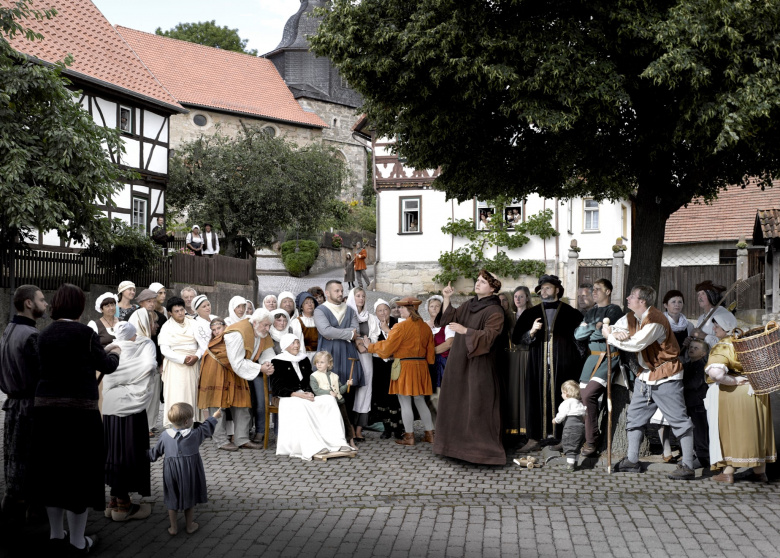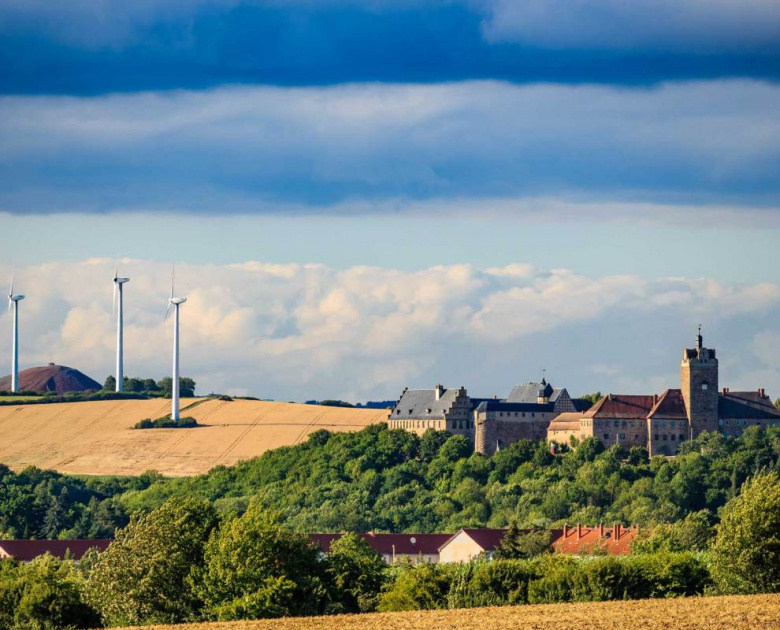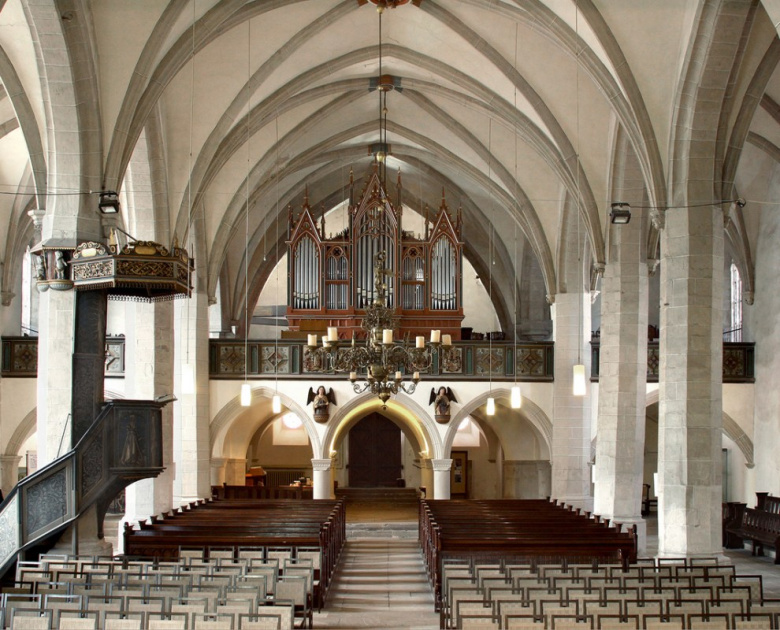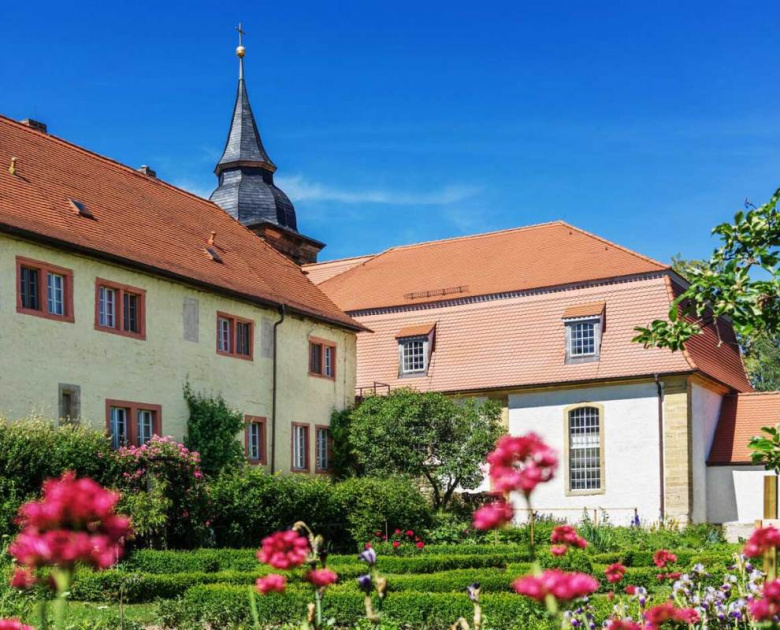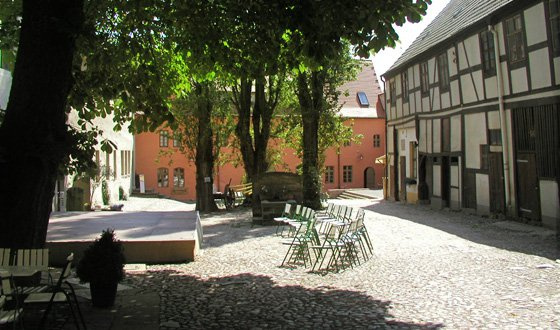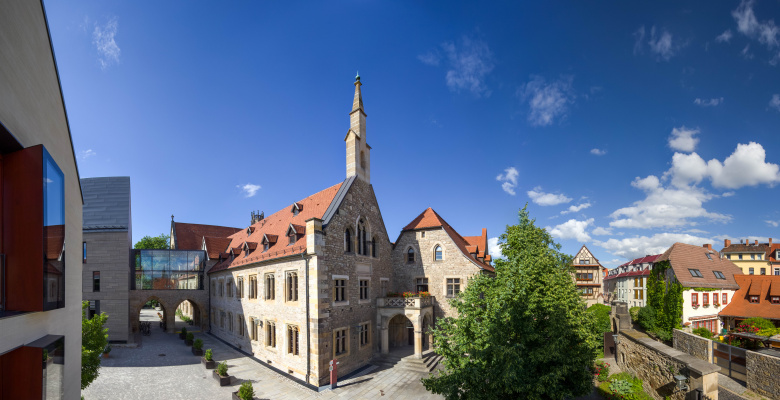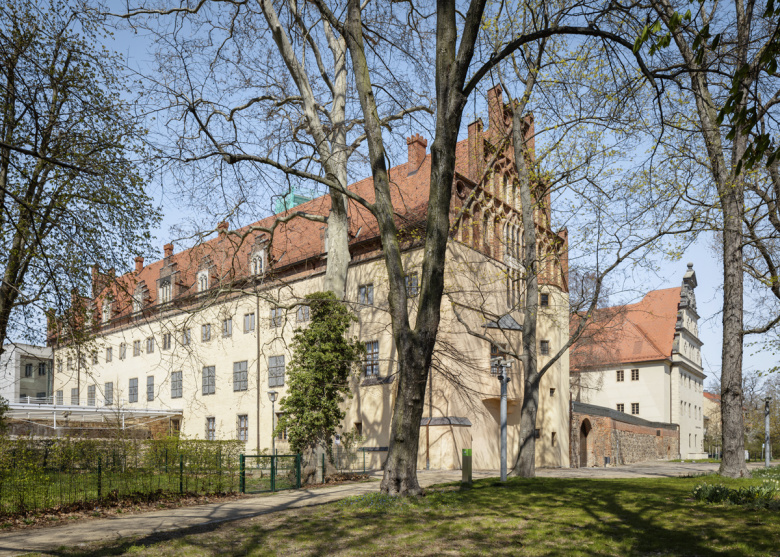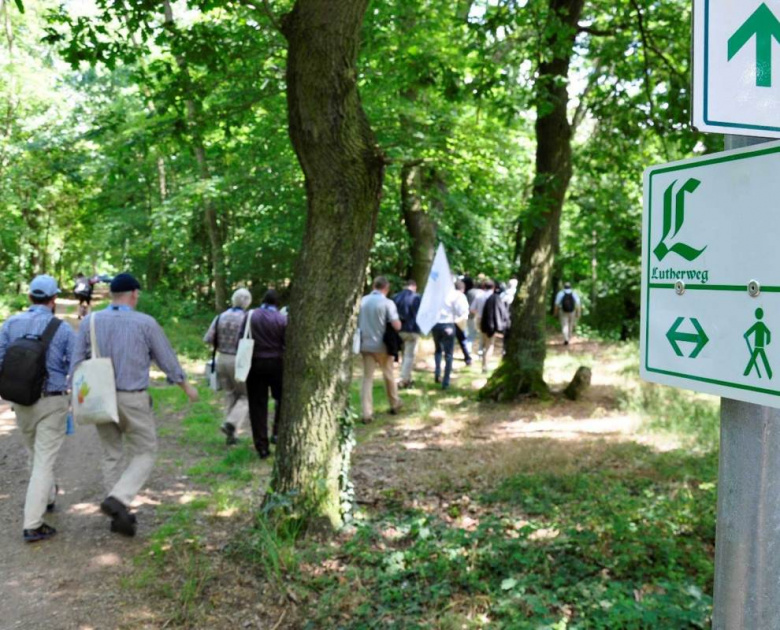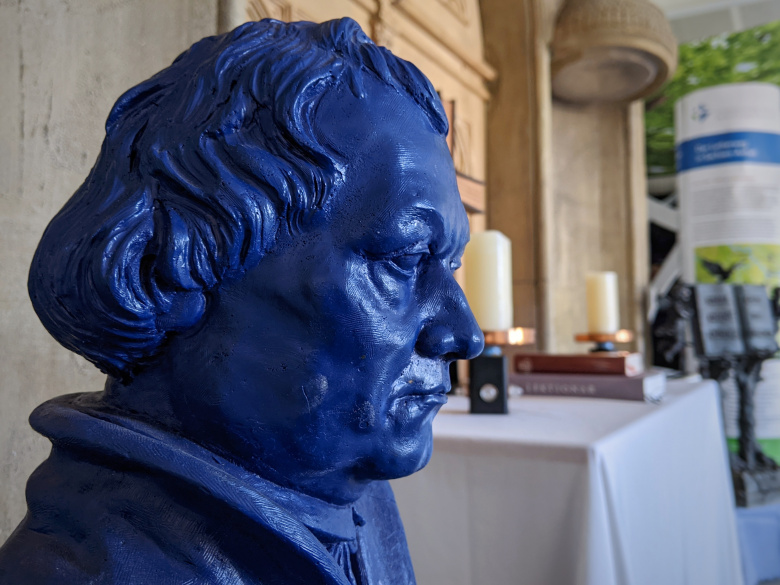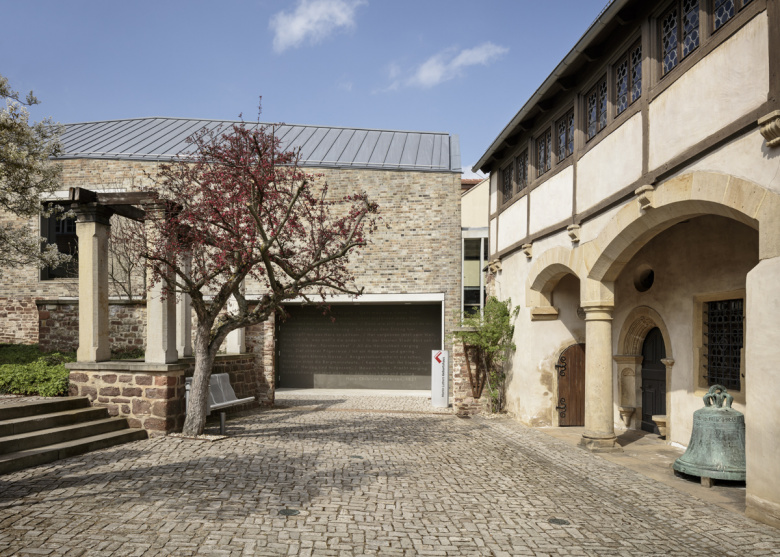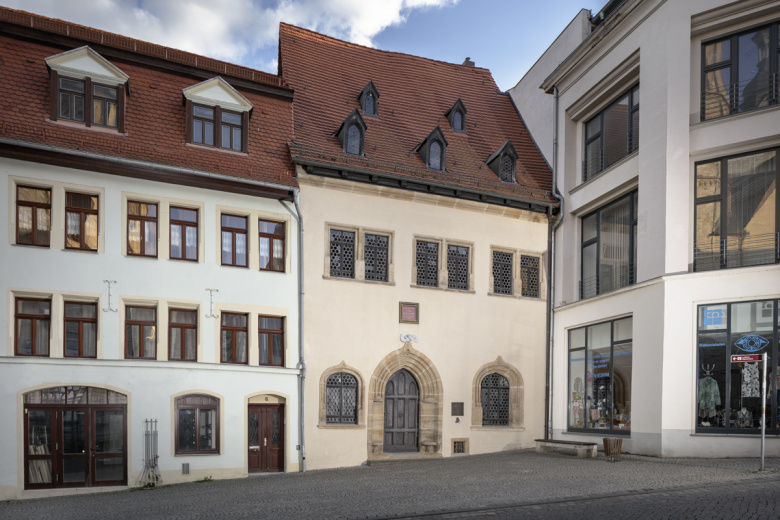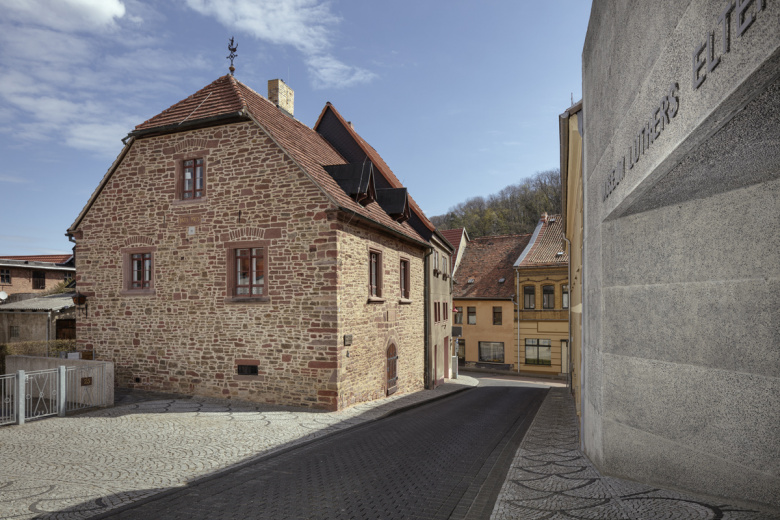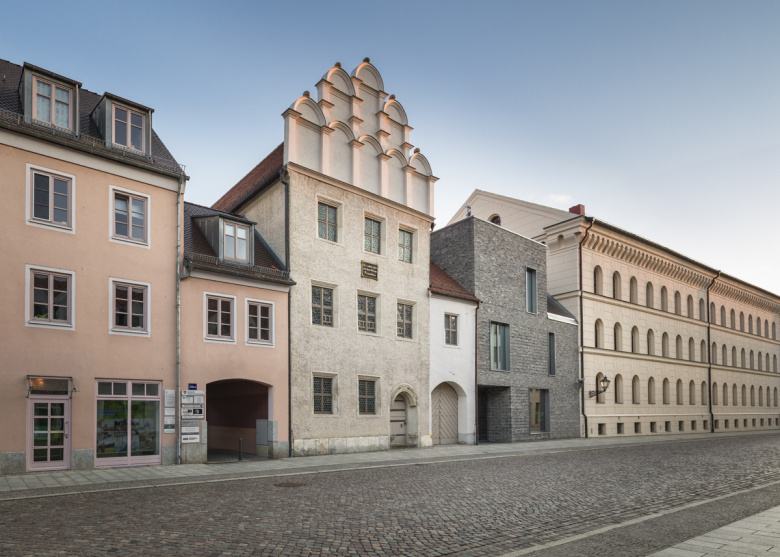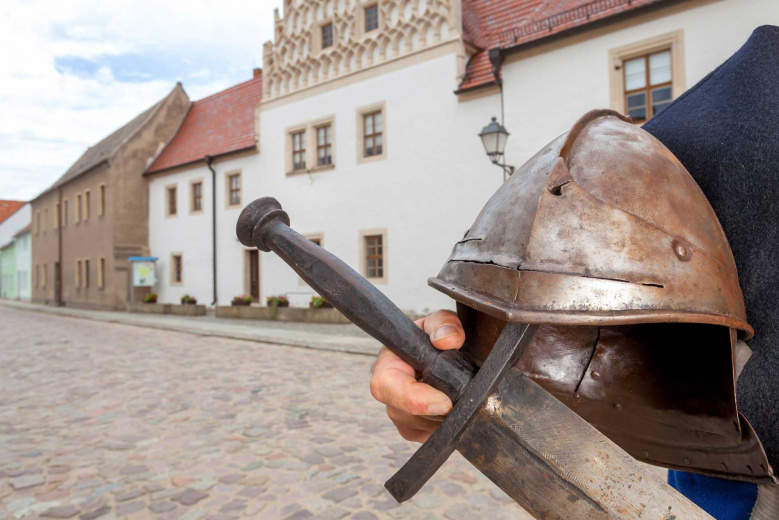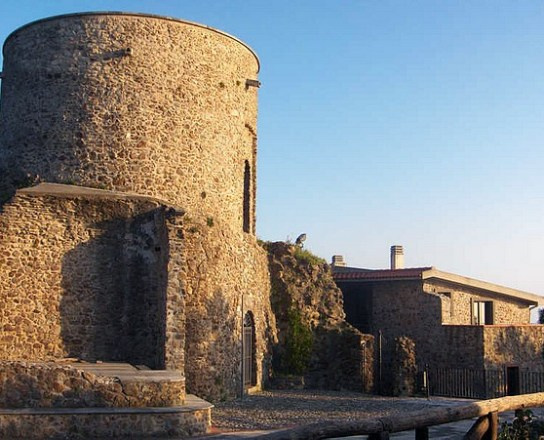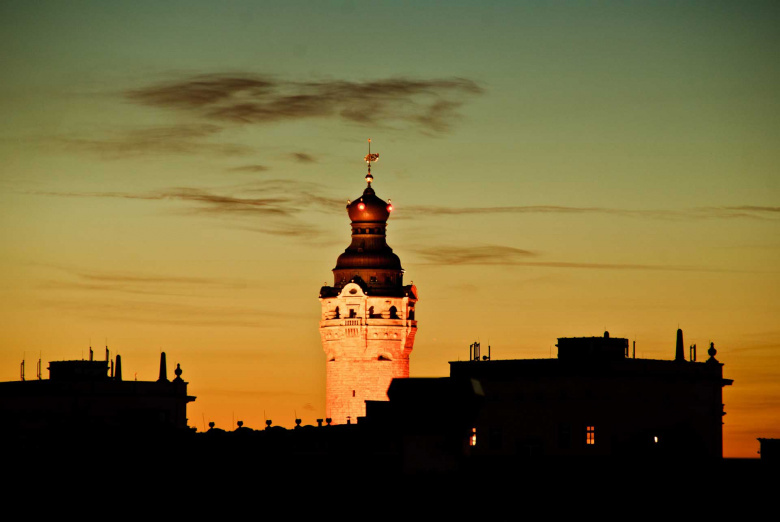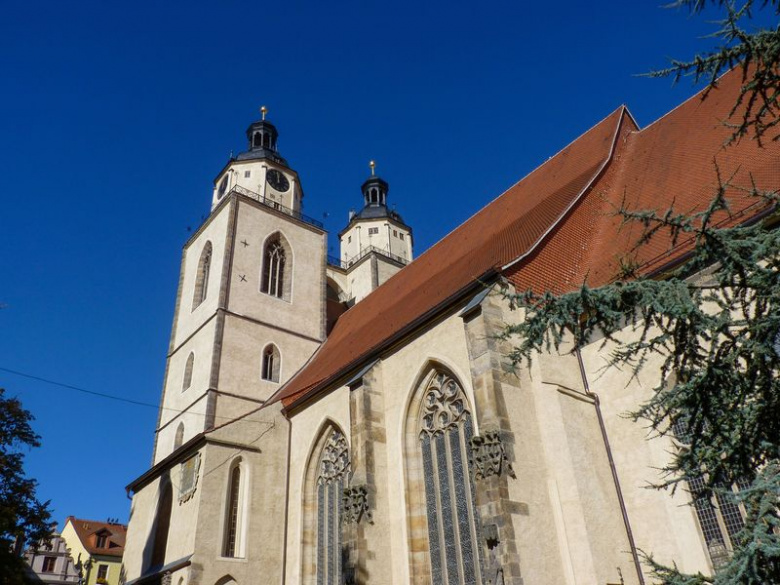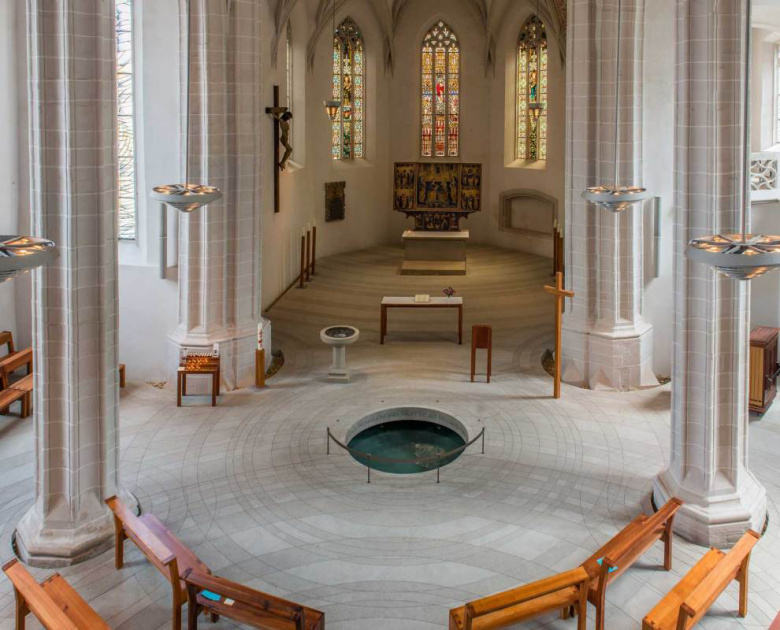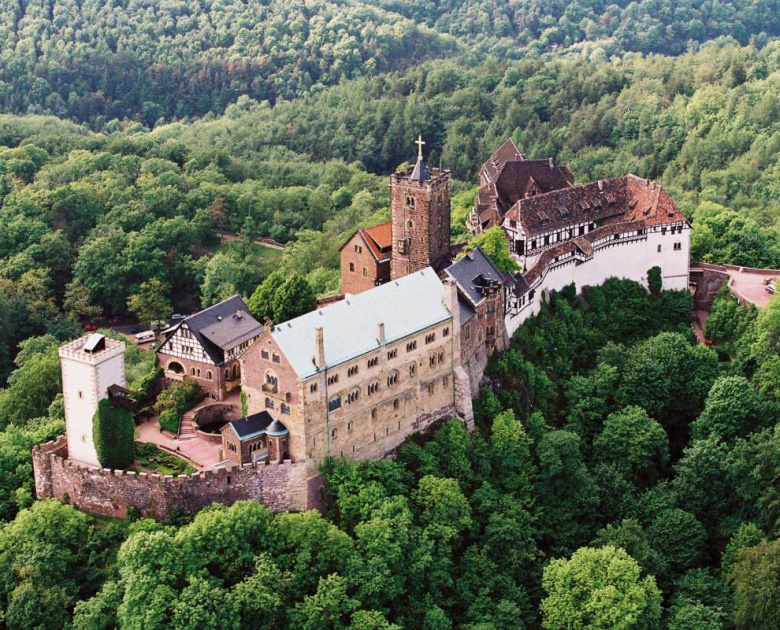Central Germany is known as the core region of the reformation, the so-called ‘Land of Luther’ and the main setting for the Peasant War. The region is closely connected to the House of Wettin. The powerful dynasty ruled over the vast territories of today’s Saxony, Saxony-Anhalt, and Thuringia around 1500.
In 1517, the Saxony electorate stepped onto the world stage as protector of the beginning Reformation. Main actor Martin Luther (1483-1546) was born in Eisleben and raised in Mansfeld, both in the area of Thuringia and Saxony-Anhalt. He studied at the University of Erfurt from 1501 until 1505. Luther referred to the university, which was one of the most renowned universities in the country at that time, as his ‘truly nourishing mother’ (Alma Mater), to which he owes everything. Erfurt, which was known as one of the major cities for humanism, was at the top of the European intellectual life.
The struggle for theological direction of the Reformation started out in Erfurt. Luther believed that humans could only reach redemption through faith in a forgiving God and not through help by the churches (letter of indulgence) or good deeds (Werkgerechtigkeit). One can only lead a just life through Jesus Christ (solus Christus), the Holy Script (sola scriptura), mercy (sola gratia), and faith (sola fide).
The nailing of the 95 theses to the door of the Wittenberg castle church on October 31, 1517, which is nowadays known as the starting point of the Reformation, led Elector Friedrich the Wise to become the protector of Luther, who had been working as a professor at the University of Wittenberg since 1512.
The powerful dynasties of Central Germany, with the Ernestinian electorate Saxony at its top, took on the new religious denomination between 1525 and the mid-1600s. They favoured the from Luther authorized appointment of supreme bishops and the establishment of the regional churches and used it for their early advances into statehood. The Peace of Augsburg in 1555 stated under the rule of Cuius regio, eius religio (Owner of the Land, Owner of the Religion) that the territorial sovereign can choose the religion for his subjects. Supported by unrest such as the Pfaffenstürmen on monasteries and churches, the Reformation took on speed and turned central Germany into the protestant cultural sphere of Central and Northern Europe.


